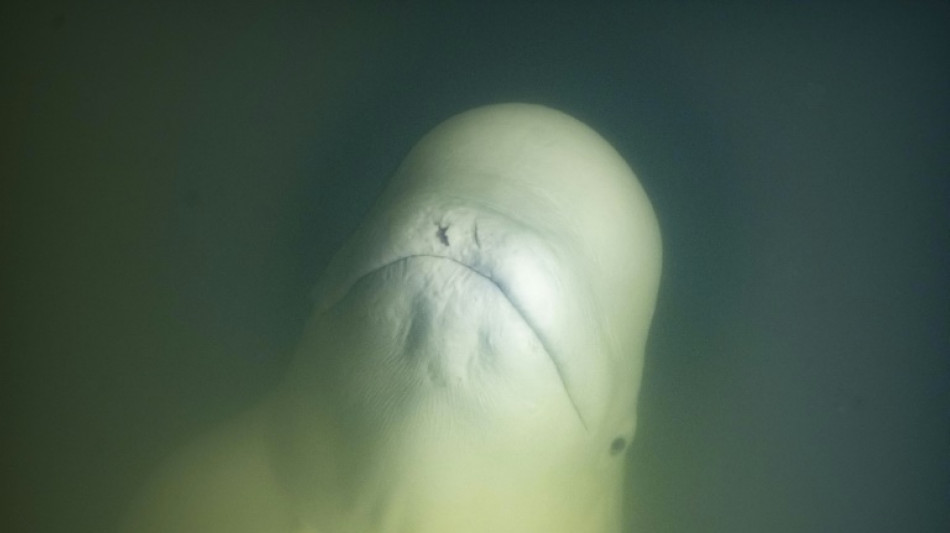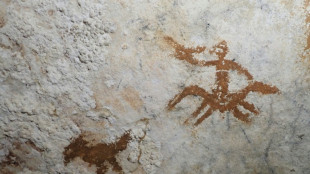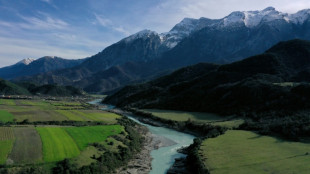
-
 Interim Venezuela leader to visit US
Interim Venezuela leader to visit US
-
Australia holds day of mourning for Bondi Beach shooting victims

-
 Liverpool cruise as Bayern reach Champions League last 16
Liverpool cruise as Bayern reach Champions League last 16
-
Fermin Lopez brace leads Barca to win at Slavia Prague

-
 Newcastle pounce on PSV errors to boost Champions League last-16 bid
Newcastle pounce on PSV errors to boost Champions League last-16 bid
-
Fermin Lopez brace hands Barca win at Slavia Prague

-
 Kane double fires Bayern into Champions League last 16
Kane double fires Bayern into Champions League last 16
-
Newcastle pounce on PSV errors to close in on Champions League last 16

-
 In Davos speech, Trump repeatedly refers to Greenland as 'Iceland'
In Davos speech, Trump repeatedly refers to Greenland as 'Iceland'
-
Liverpool see off Marseille to close on Champions League last 16

-
 Caicedo strikes late as Chelsea end Pafos resistance
Caicedo strikes late as Chelsea end Pafos resistance
-
US Republicans begin push to hold Clintons in contempt over Epstein

-
 Trump says agreed 'framework' for US deal over Greenland
Trump says agreed 'framework' for US deal over Greenland
-
Algeria's Zidane and Belghali banned over Nigeria AFCON scuffle

-
 Iran says 3,117 killed during protests, activists fear 'far higher' toll
Iran says 3,117 killed during protests, activists fear 'far higher' toll
-
Atletico frustrated in Champions League draw at Galatasaray

-
 Israel says struck Syria-Lebanon border crossings used by Hezbollah
Israel says struck Syria-Lebanon border crossings used by Hezbollah
-
Snapchat settles to avoid social media addiction trial

-
 'Extreme cold': Winter storm forecast to slam huge expanse of US
'Extreme cold': Winter storm forecast to slam huge expanse of US
-
Jonathan Anderson reimagines aristocrats in second Dior Homme collection

-
 Former England rugby captain George to retire in 2027
Former England rugby captain George to retire in 2027
-
Israel launches wave of fresh strikes on Lebanon

-
 Ubisoft unveils details of big restructuring bet
Ubisoft unveils details of big restructuring bet
-
Abhishek fireworks help India beat New Zealand in T20 opener

-
 Huge lines, laughs and gasps as Trump lectures Davos elite
Huge lines, laughs and gasps as Trump lectures Davos elite
-
Trump rules out 'force' against Greenland but demands talks

-
 Stocks steadier as Trump rules out force to take Greenland
Stocks steadier as Trump rules out force to take Greenland
-
World's oldest cave art discovered in Indonesia

-
 US hip-hop label Def Jam launches China division in Chengdu
US hip-hop label Def Jam launches China division in Chengdu
-
Dispersed Winter Olympics sites 'have added complexity': Coventry

-
 Man City players to refund fans after Bodo/Glimt debacle
Man City players to refund fans after Bodo/Glimt debacle
-
France's Lactalis recalls baby formula over toxin

-
 Pakistan rescuers scour blaze site for dozens missing
Pakistan rescuers scour blaze site for dozens missing
-
Keenan return to Irish squad boosts Farrell ahead of 6 Nations

-
 US Treasury chief accuses Fed chair of 'politicising' central bank
US Treasury chief accuses Fed chair of 'politicising' central bank
-
Trump rules out force against Greenland but demands 'immediate' talks

-
 Israeli strike kills three Gaza journalists including AFP freelancer
Israeli strike kills three Gaza journalists including AFP freelancer
-
US Congress targets Clintons in Epstein contempt fight

-
 Huge lines, laughs and gasps as Trump addresses Davos elites
Huge lines, laughs and gasps as Trump addresses Davos elites
-
Trump at Davos demands 'immediate' Greenland talks but rules out force

-
 Australia pauses for victims of Bondi Beach shooting
Australia pauses for victims of Bondi Beach shooting
-
Prince Harry says tabloid coverage felt like 'full blown stalking'

-
 Galthie drops experienced trio for France's Six Nations opener
Galthie drops experienced trio for France's Six Nations opener
-
Over 1,400 Indonesians leave Cambodian scam groups in five days: embassy

-
 ICC rejects Bangladesh's plea to play T20 World Cup matches outside India
ICC rejects Bangladesh's plea to play T20 World Cup matches outside India
-
Prince Harry says UK tabloid court battle in 'public's interest'

-
 Trump lands in Davos to push Greenland claims
Trump lands in Davos to push Greenland claims
-
Balkan wild rivers in steady decline: study

-
 Injured Capuozzo misses out on Italy Six Nations squad
Injured Capuozzo misses out on Italy Six Nations squad
-
Mourners pay last respects to Italian icon Valentino


Whale menopause sheds light on human evolutionary mystery
Why do humans experience menopause? It's a question that some women going through the symptoms might have asked themselves more than once.
Scientists are also baffled. From an evolutionary perspective, animals generally take every chance they can get to have as many offspring as possible to boost their odds of survival.
So why have some species evolved to have menopause, in which females live many years after they stop being able to reproduce?
That there are so few other examples in the animal kingdom only deepens the mystery.
Out of 5,000 mammals, just five species of whales with teeth -- including killer whales, beluga whales and narwhals -- are the only others known to have females that regularly live long after they stop reproducing.
However plenty of other toothed whales, such as dolphins, do not experience menopause.
By looking at the differences between these two groups, a UK-led team of researchers sought to discover why some whales evolved to get menopause -- and what this could tell us about ourselves.
Despite our many differences, humans share a "convergent life history" with these ocean giants that led to the independent evolution of menopause, the researchers concluded in a study published in Nature on Wednesday.
Their results tied together several existing hypotheses. The first piece of the puzzle involving lifespan.
- The grandmother hypothesis -
Females of the five species that have menopause live roughly 40 years longer than other similar-sized whales, the researchers found.
These female whales also easily outlive males of their own kind.
Female killer whales "regularly live into their 60s and 70s, but the males are all dead by 40," lead study author Samuel Ellis of the UK's University of Exeter told an online press conference.
This supports what is known as the "grandmother hypothesis" -- that older females care for their grandchildren, therefore helping their species survive in a different way.
But why would it be an evolutionary advantage for these grandmothers to stop having offspring?
"The second part of this story is about competition," study co-author Darren Croft said.
When killer whale "mothers and daughters try and breed at the same time, the calves of the older females" have a significantly lower survival rate as they compete for resources, he said.
"So they have evolved a longer lifespan while keeping a short reproductive lifespan," Croft added.
"This is just the same pattern of life history we see in humans."
Though we walk on land and they swim through the ocean, the similarities between human and whale social structures is "absolutely striking", Croft said.
- The importance of matriarchy -
"Older matriarchs" play an important role within both societies, he said.
For example, the experience older females have gathered over their lives helps the whale families get through hard times such as environmental challenges or a lack of food.
But just having a matriarchal society is not enough. Older female elephants, for example, look after their offspring but keep reproducing until the end of their lives.
The key difference could be that older whale mothers keep looking after their sons, Croft said. Young male elephants, however, leave the family group.
Both sons and daughters sticking around could even be a unique trait to the five whales -- and humans -- that get menopause, he speculated.
Rebecca Sear, an evolutionary demographer and anthropologist at the London School of Hygiene and Tropical Medicine not involved in the study, cautioned that this could not "provide definitive answers to the question of why menopause evolved".
Whales are incredibly difficult to study, and a lot of the data used for the research was from unnatural events such as mass strandings, she commented in Nature.
Meanwhile, there has been increasing criticism that menopause in human women remains badly under-researched due to a long-standing male-skewed bias in medical research.
"Human grandmothers, like whale grandmothers, are important in the lives of their adult children and grandchildren, but older women are too often ignored in policy circles and public health research," Sear said.
D.Schaer--VB



